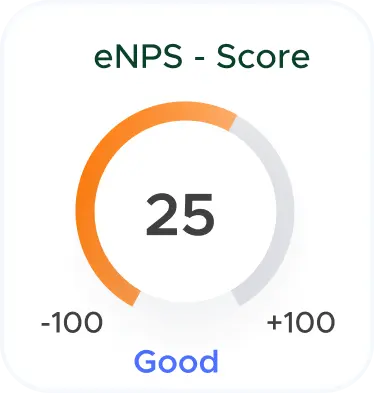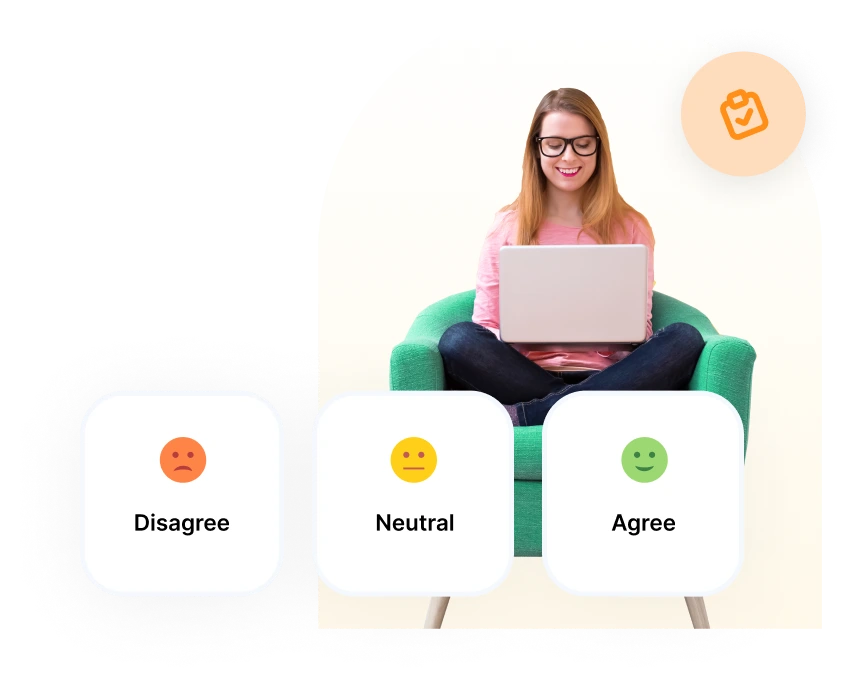✨ Verpassen Sie es nicht! Melden Sie sich für unser Webinar zum Thema Mitarbeiterzufriedenheit am 29. Februar an.🎖️
✨ Verpassen Sie es nicht! Melden Sie sich für unser Webinar zum Thema Mitarbeiterzufriedenheit am 29. Februar an.🎖️
Jetzt anmelden
Glossar der Begriffe des Personalmanagements und der Sozialleistungen für Arbeitnehmer
Behavioral interviews are based on the premise that past behavior is the best predictor of future behavior. Instead of hypothetical questions like "How would you handle a difficult situation?", behavioral interviewers ask questions like "Can you provide an example of a time when you successfully resolved a conflict with a colleague?" These questions require candidates to draw upon specific experiences from their past to demonstrate relevant skills and competencies.
A behavioral interview is a type of job interview where the interviewer asks questions about your past behavior in specific situations. The premise behind behavioral interviews is that past behavior is a good predictor of future behavior.
These questions are designed to assess how you've handled certain situations in the past and how you might approach similar situations in the future. Instead of hypothetical questions like "How would you handle a difficult customer?", behavioral interview questions typically begin with phrases like "Tell me about a time when..." or "Give me an example of...".
When answering behavioral interview questions, it's important to use the STAR method:
By following this structure, you provide a clear and structured response that highlights your abilities and experiences.
Behavioral interview questions typically focus on your past experiences, skills, and behaviors. Examples of behavioral interview questions include:
These questions are designed to elicit specific examples from your past that demonstrate relevant skills and competencies.
Behavioral questions in interviews are those that prompt candidates to provide examples of past behavior in specific situations. These questions are designed to assess a candidate's skills, competencies, and fit for the role based on their past experiences. Behavioral questions often focus on areas such as problem-solving, communication, teamwork, leadership, and adaptability.
A behavioral-based interview is a structured interview technique that focuses on gathering specific examples of past behavior from candidates. Instead of asking hypothetical questions, interviewers ask candidates to provide real-life examples of how they've handled various situations in the past.
The premise is that past behavior is a reliable indicator of future performance, so these interviews aim to assess candidates' ability to demonstrate relevant skills and competencies.
To effectively answer behavioral interview questions, it's crucial to structure your responses using the STAR method:
Some preparation tips for behavioral interviews are as follows:
Do the following when the behavioral interview is taken:
To ace a behavioral interview, consider the following tips:

Es handelt sich um kurze Umfragen, die häufig verschickt werden können, um schnell zu erfahren, was Ihre Mitarbeiter über ein Thema denken. Die Umfrage umfasst weniger Fragen (nicht mehr als 10), um die Informationen schnell zu erhalten. Sie können in regelmäßigen Abständen durchgeführt werden (monatlich/wöchentlich/vierteljährlich).

Regelmäßige, einstündige Treffen für ein informelles Gespräch mit jedem Teammitglied sind eine hervorragende Möglichkeit, ein echtes Gefühl dafür zu bekommen, was mit ihnen passiert. Da es sich um ein sicheres und privates Gespräch handelt, können Sie so mehr Details über ein Problem erfahren.

Der eNPS (Employee Net Promoter Score) ist eine der einfachsten, aber effektivsten Methoden, um die Meinung Ihrer Mitarbeiter über Ihr Unternehmen zu ermitteln. Er enthält eine interessante Frage, die die Loyalität misst. Ein Beispiel für eNPS-Fragen sind: Wie wahrscheinlich ist es, dass Sie unser Unternehmen weiter empfehlen? Die Mitarbeiter beantworten die eNPS-Umfrage auf einer Skala von 1 bis 10, wobei 10 bedeutet, dass sie das Unternehmen mit hoher Wahrscheinlichkeit weiterempfehlen würden, und 1 bedeutet, dass sie es mit hoher Wahrscheinlichkeit nicht weiterempfehlen würden.

To prepare for a behavioral interview, follow these steps: